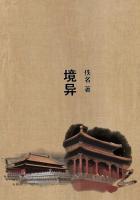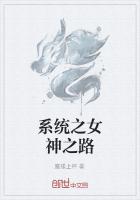This officer first cuts off his legs and arms at the joints, and lastly he cuts off his head; after which the head of the officer is struck off. All the potentates retire from the encampment, in order not to witness his death. It is my duty to remain and witness his death, and to mark the place where the head and arms have been deposited by the two great chiefs, the enemies of the Matiamvo. They also take possession of all the property belonging to the deceased monarch and his family, which they convey to their own residence. I then provide for the funeral of the mutilated remains of the late Matiamvo, after which I retire to his capital and proclaim the new government. I then return to where the head, legs, and arms have been deposited, and, for forty slaves, I ransom them, together with the merchandise and other property belonging to the deceased, which I give up to the new Matiamvo, who has been proclaimed. This is what has happened to many Matiamvos, and what must happen to the present one.
It appears to have been a Zulu custom to put the king to death as soon as he began to have wrinkles or grey hairs. At least this seems implied in the following passage written by one who resided for some time at the court of the notorious Zulu tyrant Chaka, in the early part of the nineteenth century: The extraordinary violence of the king's rage with me was mainly occasioned by that absurd nostrum, the hair oil, with the notion of which Mr. Farewell had impressed him as being a specific for removing all indications of age. From the first moment of his having heard that such a preparation was attainable, he evinced a solicitude to procure it, and on every occasion never forgot to remind us of his anxiety respecting it; more especially on our departure on the mission his injunctions were particularly directed to this object. It will be seen that it is one of the barbarous customs of the Zoolas in their choice or election of their kings that he must neither have wrinkles nor grey hairs, as they are both distinguishing marks of disqualification for becoming a monarch of a warlike people. It is also equally indispensable that their king should never exhibit those proofs of having become unfit and incompetent to reign; it is therefore important that they should conceal these indications so long as they possibly can. Chaka had become greatly apprehensive of the approach of grey hairs; which would at once be the signal for him to prepare to make his exit from this sublunary world, it being always followed by the death of the monarch. The writer to whom we are indebted for this instructive anecdote of the hair oil omits to specify the mode in which a grey-haired and wrinkled Zulu chief used to make his exit from this sublunary world; but on analogy we may conjecture that he was killed.
The custom of putting kings to death as soon as they suffered from any personal defect prevailed two centuries ago in the Caffre kingdom of Sofala.
We have seen that these kings of Sofala were regarded as gods by their people, being entreated to give rain or sunshine, according as each might be wanted.
Nevertheless a slight bodily blemish, such as the loss of a tooth, was considered a sufficient cause for putting one of these god-men to death, as we learn from the following passage of an old Portuguese historian: It was formerly the custom of the kings of this land to commit suicide by taking poison when any disaster or natural physical defect fell upon them, such as impotence, infectious disease, the loss of their front teeth, by which they were disfigured, or any other deformity or affliction. To put an end to such defects they killed themselves, saying that the king should be free from any blemish, and if not, it was better for his honour that he should die and seek another life where he would be made whole, for there everything was perfect.
But the Quiteve (king) who reigned when I was in those parts would not imitate his predecessors in this, being discreet and dreaded as he was; for having lost a front tooth he caused it to be proclaimed throughout the kingdom that all should be aware that he had lost a tooth and should recognise him when they saw him without it, and if his predecessors killed themselves for such things they were very foolish, and he would not do so; on the contrary, he would be very sorry when the time came for him to die a natural death, for his life was very necessary to preserve his kingdom and defend it from his enemies; and he recommended his successors to follow his example.
The king of Sofala who dared to survive the loss of his front tooth was thus a bold reformer like Ergamenes, king of Ethiopia. We may conjecture that the ground for putting the Ethiopian kings to death was, as in the case of the Zulu and Sofala kings, the appearance on their person of any bodily defect or sign of decay; and that the oracle which the priests alleged as the authority for the royal execution was to the effect that great calamities would result from the reign of a king who had any blemish on his body; just as an oracle warned Sparta against a lame reign, that is, the reign of a lame king. It is some confirmation of this conjecture that the kings of Ethiopia were chosen for their size, strength, and beauty long before the custom of killing them was abolished. To this day the Sultan of Wadai must have no obvious bodily defect, and the king of Angoy cannot be crowned if he has a single blemish, such as a broken or a filed tooth or the scar of an old wound. According to the Book of Acaill and many other authorities no king who was afflicted with a personal blemish might reign over Ireland at Tara. Hence, when the great King Cormac Mac Art lost one eye by an accident, he at once abdicated.













